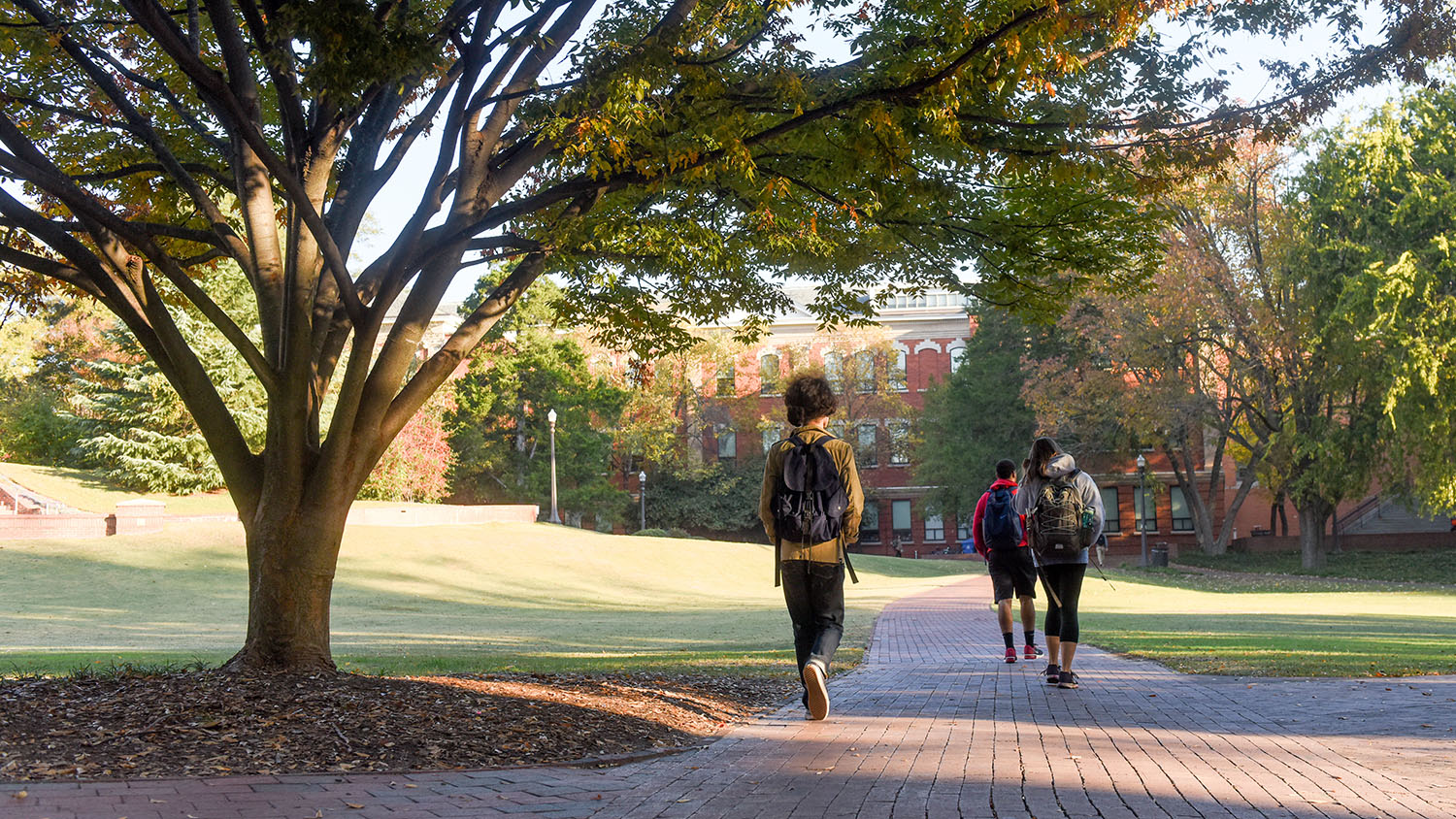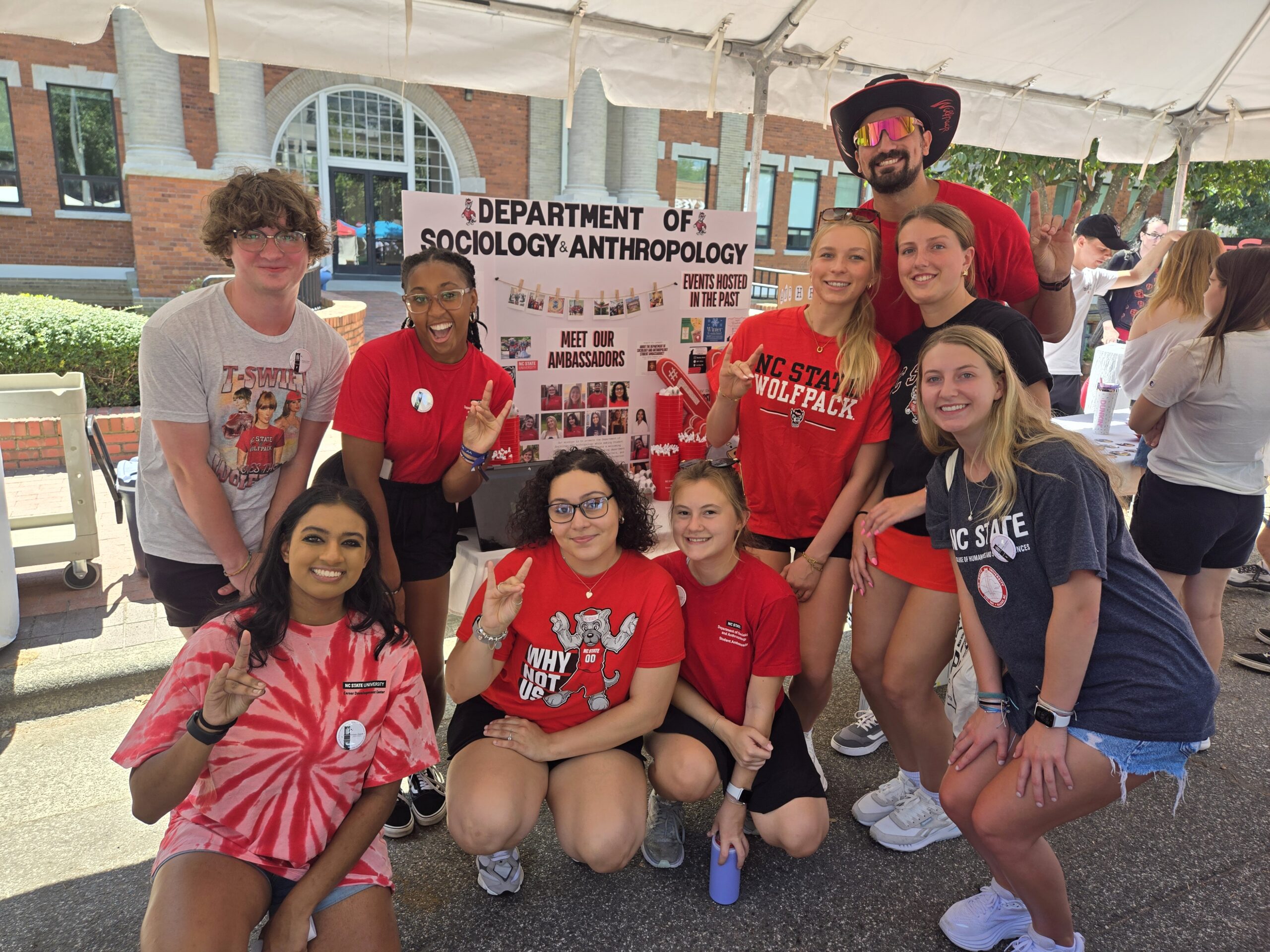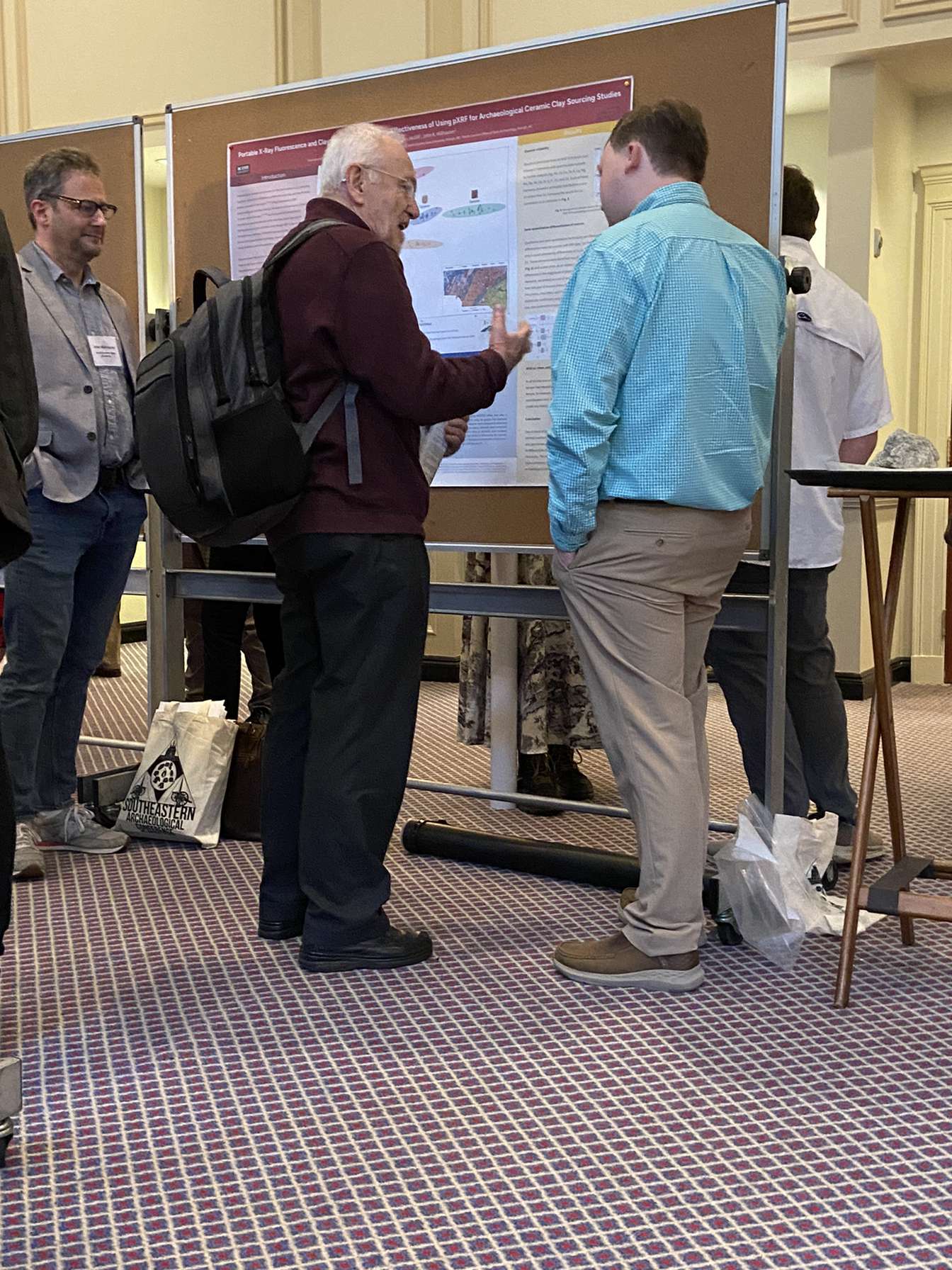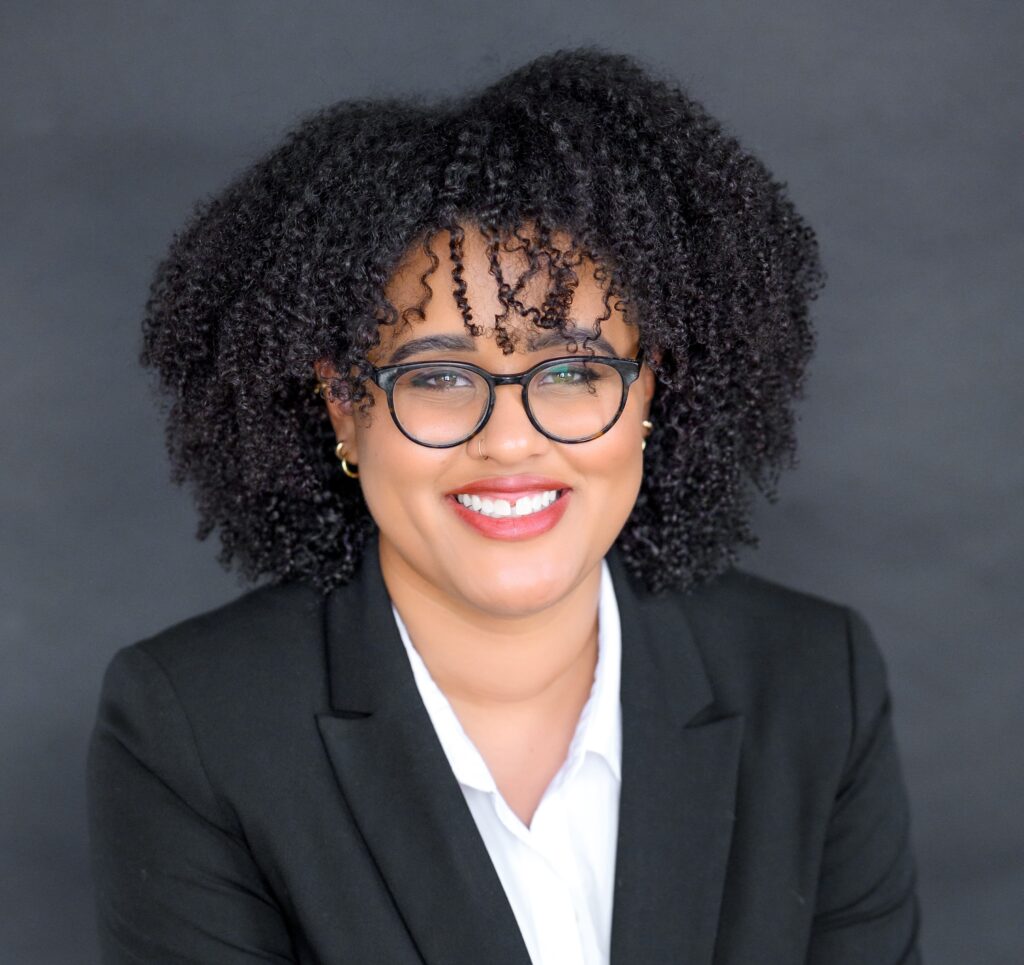Criminology: A Growing Major

This month I’ve had the opportunity to interview three members of our faculty at NC State. In a recent article, written by the News and Observer, the criminology major placed in the top 10 most popular majors at NC State along with two other majors from the College of Humanities and Social Sciences: psychology and political science.
I framed my interview around the central question, “Why do you think that criminology is growing so quickly as a major?” It’s even surpassed sociology in popularity, which is a surprise to many considering criminology is a subfield of sociology.
I interviewed:
- Dr. Stacy De Coster, a professor who is the director of undergraduate programs and has had her research published in various criminology and sociology journals.
- Dr. Jihye (JJ) Park, a criminology lecturer and academic advisor with multiple research papers published in the British Journal of Criminology.
- Ms. DeAnn Judge, a senior lecturer and academic advisor who is also the head of the criminology internship program for hundreds of students at NC State.
Why do you think criminology is growing so fast?
Dr. De Coster: “It is a national trend, where criminology is growing everywhere at the undergraduate level. NC State was at the forefront with the creation of our BA degree in the early 2000s, and other departments are now following suit. Criminology is the sociological study of crime, so at the same time criminology is growing, it is contributing to the growth of sociology, which isn’t seeing parallel growth in other concentrations of study. It’s interesting because we don’t have a department of criminology or even have criminology represented in the department’s name. This underscores that prospective students have some strong interests in the field and are working their way through documentation and websites to find the major that suits their interests. I think that when people are starting college and choosing what they want to do, criminology is associated with a sense of tangible jobs that they can envision themselves filling, viewing criminology as a starting point for law degrees or for professions rooted in supporting juveniles, working as victim advocates, working for nonprofits focused on addressing serious issues in the justice system, and working in law enforcement. We provide students with the societal and cultural understandings that help prepare them to work in these fields and to be agents of change and support in an overarching criminal justice system that more and more people are recognizing to be quite problematic. And, let’s face it, almost everyone knows family, friends, or acquaintances who have been or are justice-involved because our country’s experiment with mass incarceration has affected large swaths of the population, though targeting marginalized individuals and groups disproportionately. As a result, crime and political policies related to crime have become central topics in our country and are topics that have touched the population quite intimately. Crime leads in the news and in political debates, and it shapes people’s lives.
There are so many angles from which people can come to criminology to focus on societal issues and problems that have touched their lives and the lives of their families and friends. There are all these core issues are at the forefront of societal discussions, like Black Lives Matter, the disproportionate killings of black citizens by police officers, inaccurate narratives linking immigration to crime, school shootings and gun control, issues of gendered victimization and hate crimes, and movements like Black Lives Matter and Me Too. Issues related to crime, victimization, and social control have become so big and so present within people’s lives that they want to understand them, and they want to work in tangible ways to make society better by addressing pressing social problems related to social control, victimization, crime, and social justice. I think students view a criminology degree as a means to start a career in which they can get paid to address very tangible problems and issues that have meaning in their lives.”
Ms. Judge: “I started noticing a lot of my students because I advised almost 100 students and most of them are criminology. But most of them would start taking forensic science as a minor, and over time our forensic science minor has changed considerably. It used to be that some social science classes like PS307 or PS305 might count towards the minor, but now those don’t. It’s gotten a lot more science-based. So now it kind of shifted from, “I’m not going to be a CSI-type, crime scene investigator and study blood splatters and stuff like that, but now I want to analyze these people.” So, I think maybe now seeing a little bit more psychology, minors and double majors kind of help feed that. Some of this popularity comes from, you know, just students and the crime TV shows that they’re watching being interested, it interests them, and they want to do that.”
Dr. Park: “It is definitely a nationwide trend; I think many students are interested in law enforcement jobs and some are interested in going to law school. With their career interests and interests in general, the growing number of students have been majoring in criminology.”
How do you see criminology growing, either as a major or a profession?
Dr. De Coster: “I think the great thing about criminology is that there are so many substantive topics within its reach. As we continue to grow our criminology concentration here at State, I envision we will be adding some interesting new classes. The area covers really timely and pressing topics, including intimate partner violence, school violence, the disproportionate incarceration of indigenous populations, abolitionism, the criminalization of mental health and substance-related issues, restorative justice, and so on.
There are always shifts in the particular things we’re talking about, and we’ll be talking more about things like probation, people being prisoners in their own communities, abolitionism, the criminalization of women’s reproductive choices, and so on moving forward. We’re always doing theoretical and empirical work to understand the problems in the system because what we know is the system is marred with serious problems that perpetuate social inequality and injustice. Even as the system changes, it manages to hold on to the problematic ideologies and goals that it was founded upon. We shift from one form of disproportionately targeting populations for control to another, and there are always some groups that are going to make money or gain power off of shifting strategies of social control, but we’ll be here working to predict and interrupt these shifts and teaching students how to think critically and sociologically about the issues. I envision our students expanding their reach in society moving forward and taking more of a lead where we need this kind of thinking, for instance, by seeking political office and engaging relevant issues in other civically responsible ways and through additional venues.”
Ms. Judge: “Students, when they realize that they can go to work for a private company like Target or Amazon and go into assets protection and loss prevention, they realize that they can use their major in different ways…I’ve seen a lot of students that start off their internship, and they want to go to law school and then they’ll do some kind of a court-related internship and then they decide or realize that there are other opportunities for them to work in the legal field without going to law school but with their degree.”
Dr. Park: “Criminology has been a popular discipline/major for decades. I think that this trend will continue in the future.”
Have you seen the development of critical thinking in your criminology classes throughout the semester?
Dr. De Coster: “I think critically and sociologically analyzing crime and social control can have a really transformative effect on students who are open to it. For instance, I once had a student who planned to be a police officer and, in fact, was far into the interview process for starting his career with the LAPD. During the course of the semester, he told me that after learning what he learned in class, he was planning to keep a journal in which he would keep track of his ideals related to equality and justice and check in daily to see how his ideals were challenged through the everyday work of policing. I thought this was fantastic and suggested that he do it and then publish it because it would be a nice case study documenting how the organization and culture of policing sort of stymies attempts to disrupt or challenge the status quo, which we know to be quite problematic. If someone in my courses comes to me and says they want to be a police officer (which, notably, is not one of the main things students do with our criminology degree) a, I see teaching and working with the student as aa way for me to help fulfill the University mission of having a transformative impact on society by advancing the greater good. This is a space where the student engages social scientific theories and evidence about problems in the system, how the problems developed, and how they are upheld and, more optimistically, ultimately disrupted through everyday action I think it’s important that we discuss these things with young people who plan to become part of the system. I think it’s good we have more people coming our way and studying criminology within the sociology department because it means they are following what is going on in society and want to be engaged with it all. We help provide some of the tools of critical, culturally sensitive, and informed engagement.”
Ms. Judge: “I’ll have a lot of students want to go into certain paths that change over time. They want to go into something like policy work, so they still might want to work for a governmental agency, but they want to work on policy and planning and focus maybe on justice issues or correctional justice issues…? So, I don’t think students at the start ever think about that. They kind of think like oh law enforcement or police work, or I’m going to work with kids in some capacity and not realizing that there are other opportunities out there that are available.”
Dr. Park: “Students learn criminology as science, including theories and empirical data, while taking criminology courses. Throughout this learning process, students understand crime and criminal justice systems in different ways. For example, many students think that criminal punishment is a simple response to crime in the beginning of the class. At the end of the class, students understand criminal punishment as social control functions.”
I want to say a huge thank you to all three of my interviewees, as they took time out of their very busy schedules that include spring enrollment at this moment, to be interviewed and share their thoughts on a very important major to them here at State. They are so knowledgeable and are all looking forward to seeing the impact that all their current NC State students make on the occupational field in the future and to meet the future students coming into the criminology degree.

This article is by Breena Wheeler, a Department of Sociology and Anthropology student ambassador majoring in criminology and psychology.
- Categories:


